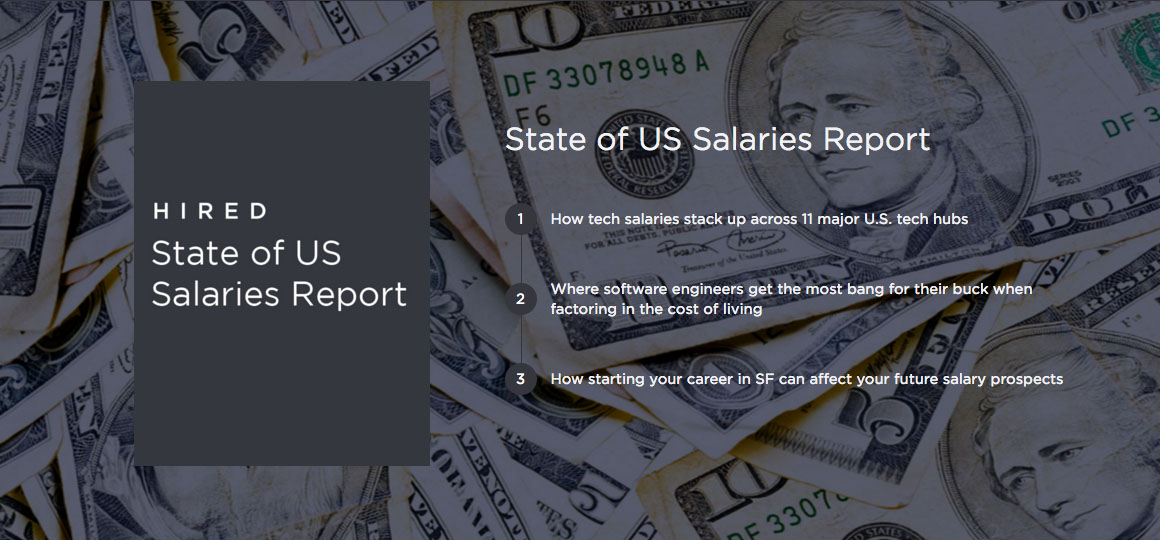
Traditional job searches are opaque and one-sided, particularly when it comes to salary negotiations. Candidates often don’t know the market rate for their skill set and level of experience, or how offers they receive stack up to the other opportunities that are out there.
Hired is on a mission to change all that. We are big believers in the idea that greater transparency in the job searching process benefits everyone. Candidates know how much they’re worth so that they can more easily evaluate offers and find a role that pays fairly. And companies know how their pay stacks up to their competitors so that can recruit and hire with insight.
In an effort to foster this transparency and shed light into software engineer salaries in the US and the UK, today we’re sharing the results of an intensive study. While there are other options for finding salary information online, most of them are flawed in at least one way of a few ways. They’re often based on anonymous, self-reported data that can be highly inaccurate, or they provide an aggregated number that doesn’t take into account location, company size or years of experience. Our inaugural State of Salaries Reports not only take all of these factors into account, they are based on real job offers to real people.
Our data science team spent many hours digging into this information to find out not only how different tech hubs like New York, San Francisco and London stack up against one another in terms of salary, but also how that translates into quality of life in those markets. While most people know that software engineer salaries are particularly high in San Francisco, they often don’t fully understand how the cost of living impacts those figures. The report also looks at how starting your career in a tech hub like San Francisco or New York can impact your earning abilities when you move to another city. In our UK report, we paid special attention to how salaries for software engineers correlate with years of experience and company size, as well as identifying the EU countries where London companies are finding their talent.
To find out more, please download our US report here and our UK report here.






Where tech goes, higher cost of living eventually follows. We’re cash cows for everyone, especially the slumlords of America.
I’d be interested to see cost of living analysis which compares “cost of living” to “cost of mortgaging”. Sometimes, these figures have stark differences.
In California, one might expect to pay $400k for a house that would cost $150k where I live. Where I live (Columbus, OH), to rent said house, one would pay over $1200/month. The mortgage payment is half the rent cost. That significantly lowers cost of living, and contributes to net value. That would help offset the crappy salaries… of course only if you can get a mortgage and if you plan on sticking around. Columbus is also unique in that there are cheap rentals as well, but that probably won’t last much longer.
Where’s the Canada report?